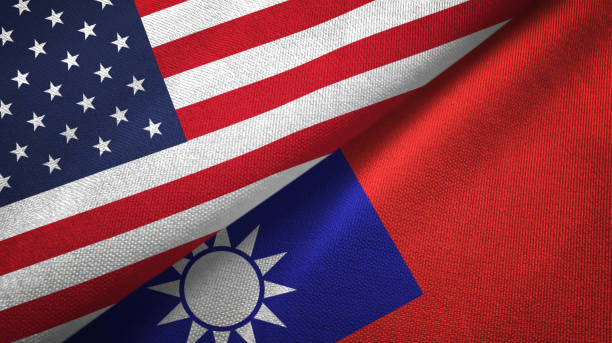
The recent news of Taiwan Semiconductor Manufacturing Company (TSMC) will construct semiconductor facilities in the USA and be backed by an American pledge of up to $6.6 billion is a big event for the worldwide tech industry. This action holds many meanings, especially within US-China connections and geopolitical landscape of trade and economics.
The move of TSMC to set up manufacturing centers in the United States shows a strategic change in how the semiconductor supply chain is structured. This alteration has been brought about by multiple elements. Initially, it tackles worries about fragilities in supply chains that have been made evident due to breaks such as the worldwide chip scarcity. By spreading out production spots, TSMC wants to ease risks related with political tensions, disasters that occur naturally and other unexpected situations.
Looking at it from a geopolitical point of view, the growth of TSMC in USA holds significance for the competition between US and China. Semiconductors are crucial components of contemporary technology, used in everything from consumer gadgets to defense systems. Having control over this industry’s production can result in important geopolitical advantages. TSMC can help the USA in becoming more independent with semiconductors. This could decrease their need for Chinese manufacturing, lowering China’s power over this important area of industry.
Yet, the effects of TSMC’s decision go beyond just issues between two countries. It shows a wider rearrangement in worldwide supply chains, where firms are putting more focus on strength and variety instead of just being cheap. This change might reshape how international trade and investment work, affecting not only relations between US and China but also the whole planet’s economy.
For handling these intricate geopolitical and economic issues, policymakers will need to use multiple methods. Initially, creating more partnerships among governments, industry people and research organizations is crucial for boosting internal semiconductor abilities. Dedication of funds towards research and development along with encouragement for new ideas can help in making US a competitive player in the field of semiconductors.
Second, policymakers should focus on using diplomacy to handle pressures between the United States and China. It is a reality we cannot avoid that these two powerful nations compete with each other, yet it’s also very important they cooperate in some aspects like fighting against climate change or handling public health situations for worldwide stability. Diplomatic talks and discussions are helpful in stopping disagreements from getting worse and lessening the chance of more serious conflict happening.
Additionally, by promoting multilateralism and encouraging diversification in trade relationships can help to lessen reliance on one market or supplier. By urging collaborations with allies and fostering trade pacts that promote fair competition as well as safeguard intellectual property rights will assist in creating a stronger world economy.
The importance of TSMC’s growth goes further than just economic benefits. It represents a larger strategic need to spread out the supply chain for semiconductors, reducing possible dangers related to political and other disturbances. As these chips are used in important technologies like mobile phones and defense systems, having control over their production also means having power in geopolitical matters – this becomes even more crucial when there are worries about a possible Chinese attack on Taiwan.
The effects of the COVID-19 pandemic have made clear the vulnerabilities in supply chains, pushing for a focus on localized manufacturing. Global sales of semiconductors rose to $47.6 billion in January 2024, showing an increasing dependence on this technology and emphasizing the necessity for secure, domestic production.
Though the CHIPS and Science Act intends to strengthen America’s semiconductor strength, it is still very important to work together with global partners. The chairman of TSMC, Mr. Mark Liu, understands how important it is for them to spread out their supply chains so that they can handle possible problems in future and serve customers from US well which includes top technology companies too.
In the end, the move of TSMC to increase production of semiconductors in USA highlights how complicated relationships are between technology, world politics and money matters. Even if it might change US-China relations and worldwide supply chains, people must actively work together to handle these changes well. By putting money into local abilities, encouraging diplomatic involvement and supporting many-sided policies, decision-makers can guide towards a future that is steadier and more successful as global political relationships transform.
By The European Institute for International Relations















